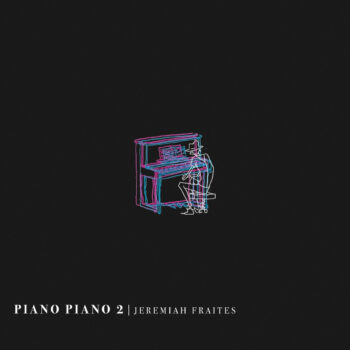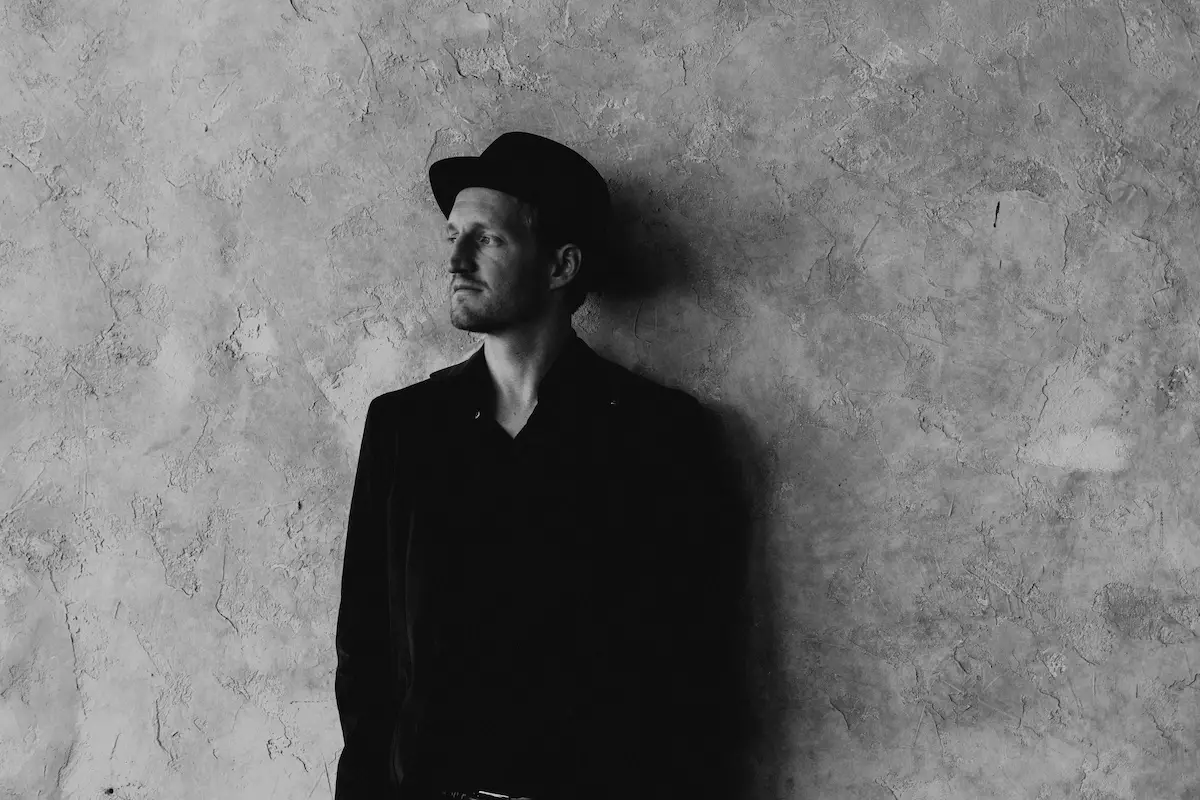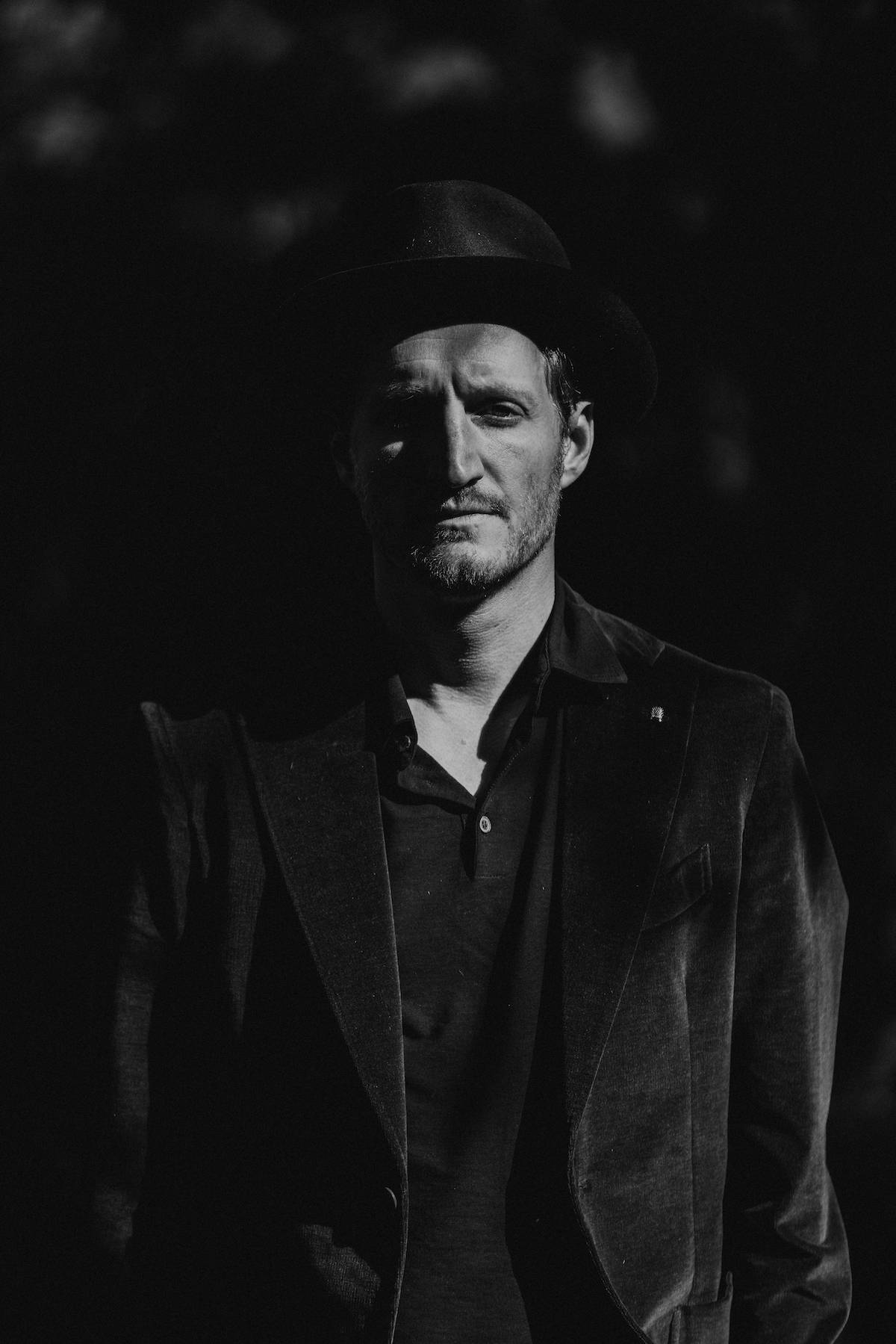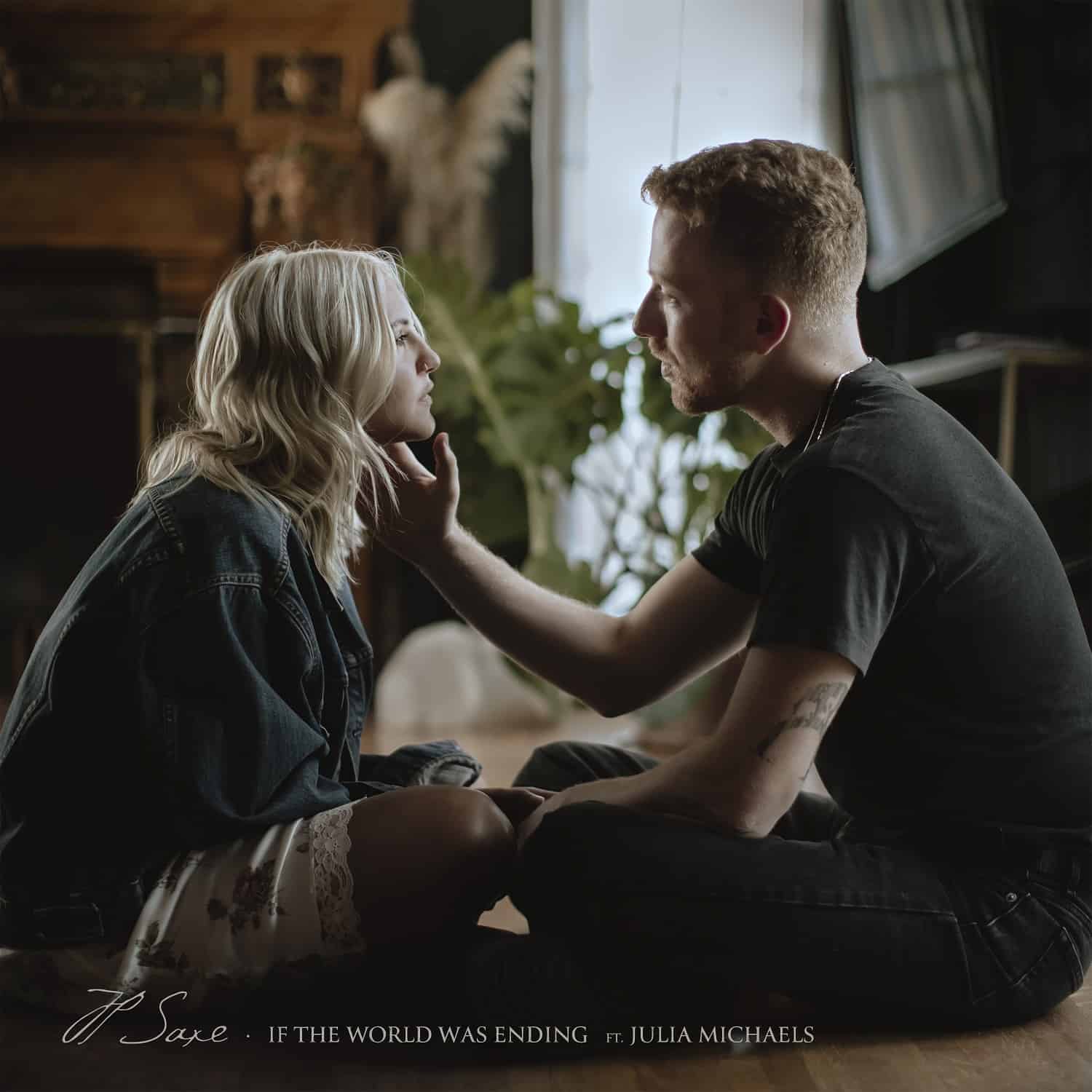Amongst tour prep, general chaos, and the passing of cars, The Lumineers’ Jeremiah Fraites shares some notes of insight regarding all the bits and bobs surrounding the release of his second solo album, ‘Piano Piano 2.’
Stream: ‘Piano Piano 2’ – Jeremiah Fraites
Through grief and hoards of old and new ideas, The Lumineers’ Jeremiah Fraites created Piano Piano 2, the follow-up to his first solo album, Piano Piano.
Released March 29, 2024 via Dualtone Music Group, the project is wholly piano and instrumental-based, which off the cuff, is an impressive feat considering the state of music today, where the simplistic beauty of a piano is often lost in the kerfuffle.
Here, we begin the interview, with Fraites and a lovely series of voice notes and transcriptions as our method of communication due to the sake of time. To start, after a brief introduction with the sounds of cars driving by in the distance, Fraites starts, “I think specifically in this day and age 2024, we are bombarded by noise and sound and static,” and jokes, “and cars driving by – but in all seriousness, I think that we are quite literally bombarded by sound and noises constantly. Everywhere you walk, everywhere you drive, everywhere you go, travel, you’ll see someone looking down at their phone or being engaged on the phone or entertained by a phone or distracted by a phone or some sort of noise and it’s pretty much 24/7, 365.”
To this point, he continues to develop the idea that piano music offers an escape of sorts. It is a way to quiet down the noise and act as a “helpful calming distraction from all that noise and static and constant bombardment.”
“I think that yeah, piano music and instrumental music I think can actually help center people and help focus you and help shift you and steer your way into a better place.”

On the subject of what music can do, Fraites briefly mentions the centering effect and purpose, if you will, that music plays in our world.
“I think music and art, in general, can do that, but I think there’s really something quite soothing about piano and I hope that this album Piano Piano 2 can serve that purpose for some people out there listening to it.”
As for how this new release differs from its predecessor, Fraites indicates that it was all a matter of mindset and intention with mindset. With 2021’s Piano Piano, he had a clear vision of something minimalistic, something that felt as though, “somebody was sitting next to me on the piano bench listening to the album and sort of having this raw, intimate, simplistic, minimalistic, sort of production and songwriting.” It’s a deeply accurate description of that album. The picture is painted perfectly. However, on this project, Fraites says, “I kind of threw all that out the window and thought- I just want to make something that… I want to make it as a sort of selfish endeavor.”
With this in mind, he recalls something intriguing. “One of the great producers of our time, Rick Rubin, he said many great things and wise, insightful, profound things, but one of the things he said that recently came to my attention was that, when you’re making art, when you’re making music, the audience should come last. And what he means by that is ironically, if you want to serve the audience best, you should think of them last, because if you go out of your way to make something that you think your audience will like, you ironically actually stray away from maybe serving them.”
From this idea, Fraites goes into how exactly this mindset impacted the making of Piano Piano 2, explaining, “If you can go deeply personal, you actually find the more universal the work becomes.”
“I just want to make what I want to make,” he adds. With that, the journey into the actual creation of the album continues.

Fraites describes his creative process as “a simple one,” illustrating a scene in which he is face to face with an instrument, “intentionally or not” and just starts playing. From there, after he has collected any number of recordings he begins the process of developing an album, which sounds similar to the process of panning for gold. Fraites depicts himself as looking for anything that pops out to him, something “distinguishable or unique.”
At this point, he takes the gems and begins the part of the process where he tries to work on ideas. It all sounds similar to something Michelangelo said regarding his sculpting process, in which Michelangelo said, “I saw the angel in the marble, and carved until I set him free.” As for Fraites’ response as far as his music creation process, he states, “I’ll try to manipulate it, I’ll try to carve it, I’ll try to make it bigger.” In addition to this, he caveats his free will as a musician with an emphasis on the importance of following what ideas indicate they want to do.
“I don’t think so much of myself as ‘Oh, I’m the artist, I’m creating this, I created this and I need to make it better.’ I think that with almost every good or great idea I’ve ever written, it’s more like I feel like I captured it and found it. It’s more akin to searching for diamonds or gold in the middle of nowhere and less about constructing something.”

Humbly Fraites boils his part in the process down to being an almost trainer of ideas as he says, “I feel like the best ideas, you sort of harness them. You are an antenna for them. And then once you are working on them or manipulating them or editing them, you’re just trying to figure out what does this song need?” While he elaborates on this idea of honing into songs, he admits that sometimes ideas that seem cool, don’t end up going anywhere, but on the flip side, some ideas offer themselves up to multiple facets of edits and manipulation.
One song of note here as mentioned by Fraites is “Spirals,” a beautiful tune that has this cascading quality to it when it comes to the structure of the piece itself, Fraites describes the song as having been a very forgiving idea because it just “kept accepting and accepting and accepting.” Whereas other songs would reject a lot of different varying elements.
“That was part of the process of trying stuff and seeing where it went.”
Finalizing commentary on the whole generalized process of it all, Fraites divulges that there surprisingly isn’t much difference between working with his band, The Lumineers, and working solo. He notes that when he is working on a solo project, “it’s sort of like the person I’m working with is the idea itself.” Continuing to follow this train of thought, he muses about it being a bit like working with “two Jeremiahs” – the present and the past versions of himself, which can sometimes be two very different people with different perspectives, in a way that almost mimics working with an actual separate individual such as Wes Schultz, lead singer of The Lumineers.
Regardless of how many people he is working with or not, it all comes down to the music and whether or not the ideas are good. Concluding this segment about the process of creation as ideas are changed into songs, Fraites says, “I think they have a personality, it’s just figuring out what they want. It’s almost like dressing them up. Do they want to wear a jacket? Do they want to wear a dress? Do they want to wear a top hat? Do they want to wear a bathing suit?! I think it’s finding the right costume.”
As for the music itself, we begin with “Spirals,” a song that truly strikes a chord and resonates on a level that grounds listeners and provides an indescribable feeling of hope and child-like ecstasy. Fraites shares intimately, “It might be my favorite thing I’ve ever created for my solo stuff.”
In speaking about “Spirals,” Fraites discusses how he intuitively knew, with this little voice in his head saying, “this song needs to be wild and spiral out of control.”
“I saw the end of the song clear as day before it actually was finished, and I saw the sort of chaotic things happening before I even started to work on it. I just knew where the song wanted to go, I had this feeling.”
He also shares insight into how he inserted and layered various samples that he had either recorded or made. These samples of audio provide an incredibly personal element to the song that makes it that much more impactful and meaningful, even as a detached listener to the piece. That being said, some of the samples include Fraites remarks, “A sample of me and my wife Francesca laughing on a phone call together,” and “our son and daughter playing with each other.”

Alongside these, and perhaps most vulnerable, Fraites tells us that “there is a particularly special sample of my brother, my older brother Josh- he passed away many years ago when he was nineteen and I was fourteen, and I found this old VHS tape of him playing with his friend and there’s a clip of him saying this word ‘battle beasts’ which were there old actions figures from the ‘80s, so that’s sort of haunting, close to home, very personal things that I recorded from a VHS tape from I think 1989 when he was probably six or seven years old.”
As for why Fraites chose to layer such emotional elements into this song, as well as others in the track listing, he says, “I’ve always loved spoken word. I’ve always loved, like, people talking samples over music. I think that always really is a really cool aesthetic.”
“I think this is my most proud completed work to date, I’m really into that song [“Spirals”] and I love those touches of the personal in there – that they’re not just random samples, but very close to my heart.”
Moving to “Spiders,” we learn that the track was, in reality, an old idea that was initially considered as a potential track for Piano Piano, but just didn’t quite fit or make the cut.
“I really love that track, it’s an old track and considering how old it is, that might be one of the first piano things I ever wrote back when I was like eighteen or nineteen, we’re talking twenty years ago at this point.”
It once again features a sample of Fraites’ children, adding in that addictive little sentimental, personal touch. And jumping back to the idea of it being an old song, Fraites says encouragingly, “Word to all the young and upcoming artists, record everything. Save everything. You can thank me later.” After all, some of the best songs just need a little time to marinate and stew before they’re ready to be given the spotlight.
When asked about the standout song “Rio,” Fraites dives straight into an accompanying story about how the title and song came to be.
“I remember I was on tour with The Lumineers. I was in a hotel room in Aspen, Colorado and I had finished the song. I had done a demo of Rio it was called something different at the time, I forget what it was called, but definitely wasn’t called Rio- I think it was called like ‘Falling In Love Again” or something I forget. I had this demo made on a fake sort of like synthesizer, it was a piano that sounded like a real piano but at the end of the day, it was a fake piano. But I did this particular take in Aspen, Colorado while on tour with the band and I fell in love with it and I thought there’s no way I’m ever going to beat this take – it’s got all the ghosts and it’s got this magic about it, so that’s what’s going to go on the record. I’m going to just leave this fake piano, it sounds good enough to me, and I just knew that I wasn’t going to beat the take. I know it’s very sacrilegious to record fake piano on a piano track on a piano-heavy album, but I thought I’m not gonna beat the take and I’d rather a great take with a questionable recording than a great recording of a shitty take, for lack of a better word. So I thought I’m not going to beat this, that’s that.”
Fraites continues the story with a breath, saying “Fast forward a few months later, I was in South America and touring with the band again and I was in Rio de Janeiro, Brazil. And I was listening to the song and it was pretty much time to finish the record it was like the 11th hour and my wife Francesca, who’s actually credited as the executive producer on this album Piano Piano 2– to her credit and it’s not just because she’s my wife it’s because she has a brilliant mind and she’s amazing and so great to work with and she helps me out with so much stuff with my solo career. So she’s duly credited as the executive producer of Piano Piano 2” to which he adds the note, “She did the same things on Piano Piano; it’s just uncredited, but it’s about time to credit where credit is due.”
“She said, listen, go into a studio in Rio, rerecord the song, I know you can beat it. I was in a very bad mood, I was tired, I was exhausted and I was very stubborn and I said ‘Listen I’m not going to beat it I don’t want to go into a studio it’s my day off I’m beat, blah blah blah.’ She was stubborn and she knew, so she said ‘Just try it, if it sucks it sucks, whatever.’ So I said ‘Alright, I’ll try it,’ sort of begrudgingly, and I went into a studio in Rio- which was like this super random, I don’t know anything about studios in Brazil let alone Rio. My team, who are amazing, found this studio in Rio with like a $200,000 piano in this amazing studio. I went in there, by far the nicest piano I’ve ever played in my whole life. I did like two or three takes and I was like, we got it. I went in with the engineer who spoke English, thankfully. He was an amazing guy, super smart and talented and we pieced together, I think, no more than two takes and that was the song.”
And from there, “Rio” was born, and aptly named because “Rio” is indeed a cool name for a song, and with such a story behind it, it only makes sense.
Getting into the next song of particular note and notice, “Extra Lives,” we begin not with the song but rather with a conversation on what classical-based music has to offer when it comes to an expression of emotion. With this thought, Fraites reveals that he too is perplexed about what exactly it is about instrumental music that strikes differently. He recalls soundtracks, like that of American Beauty and Eternal Sunshine of the Spotless Mind, and says in regards to their soundtracks, “They do something to me that other forms of music would never be able to even scratch the surface on, and I don’t know what that is.” He shares his personal take that instrumental music, as well, as other sounds and frequencies give way for listeners to “ selfishly make up your own story.”
While all music is relatively open to personal interpretation, there is something peculiar and particular about instrumental pieces that urges them to be far more open to being able to relate to any instance or memory in any individual’s life.
“There’s no lyrics or words to distract you in the same sense that there’s less information, there’s less dictation, there’s less instructions of what to listen to, so you can listen to a simple chord progression and just start getting teary-eyed or get goosebumps thinking about your childhood or random memory you had when you were six-years-old or the loss of a loved one.”
As indicated previously, this all relates vulnerably to the track “Extra Lives,” which is lovingly dedicated to Fraites’s late father. Beginning our talk about the intricacies and purpose of this song, Fraites shares that the title is a reference to the whole idea of getting an extra life in a video game.

From here, Fraites opens up about how the recent loss of his father had a significant impact on him; he reflects fondly on memories of his father and all that he did for his family over the years, where he would, in a way, bestow upon them these ‘extra lives.’
Fraites says, “He went to work every day, working in a warehouse, and never complained and did it Monday through Friday for many, many years and kind of gave the ultimate gift as a father, as a provider so that I could have a better life.” With lingering grief intertwined in his words, Fraites expresses gratitude for all that his father was able to experience with him before he passed, including meeting his children and wife and having been able to have him listen to both of his solo albums.
For the sake of respecting his father, and also to leave it open for individual perspective, Fraites says, “I think that the song really captures it in a way that, the less I say about it, maybe it’s even better.” This proves to be true, as the song genuinely speaks for itself, and tells a beautiful story of love, respect, and the waves of grief.
“It’s dedicated to my dad, the song “Extra Lives,” and I’m really proud of it. And I know he was proud of it too.”
In a switch, we move to the last few songs on the album “Snow Falling” and “Pluck.”
Regarding “Snow Falling,” Fraites, relays how he wrote the song while at his grand piano in Denver around seven or eight years ago, and he had come up with this repetition of two chords on the left hand that just repeat throughout the song, and it “just reminded me of like the opening credits to a movie.” Concerning this, he also shares, “I think I had called it for many years, like intro to a movie or opening credits.” Just listening to the song, it is completely understandable why it sounds so cinematic- each swell and element added takes you on an audible voyage. And Fraites says it best when he says, “ The beginning really just reminded me of snow falling into a parking lot. There’s light, but it’s dark out, and there’s snow falling on maybe the woods or forest or a random parking lot, and just this calm barren thing, and then something happens.”
While discussing this song, Fraites jumps back to the idea we talked about prior in the interview of what separates Piano Piano 2 from Piano Piano, to which he adds, “This was a big surprise, something just really turned the corner and I don’t think I did that really on the first record, which is fine, but this was a big change I think and I was really into that idea. I liked the idea that the listener would kind of go like, ‘Oh,’ you know, ‘what’s that?’”
As for notes on “Pluck,” Fraites shares candidly, “I had reached out to this app called Calm and I really tried to write something really soothing, and quietly literally… calm, and something that I wouldn’t normally write.” He continues describing the song as being something, “calm and like minimalistic” while also being “hyper spacious and spatial” and overall carrying an “esoteric and ambient” quality to it.

And of course, we are now brought to the subject of Radiohead, Fraites’ favorite band – despite his high school self’s initial thoughts – and the cover of “No Surprises,” which features the vocals of the ever-talented, Gregory Alan Isakov.
Whether it be Thom Yorke’s voice or odd piano playing, the weird progressions, or any of the instrumentation on the part of the Greenwoods, etc., Jeremiah Fraites shares that he has always been inspired by how the band “broke the rules” and had every album work in a way that shifted the paradigm of music and great albums.
As for the inclusion of Isakov on the track, Fraites speaks to how they have worked together in the past performing shows with one another, including Fraites opening for Isakov at Red Rocks in Colorado, and on this record, his voice just melded wonderfully with the song and orchestral arrangement, and just “knocked this song out of the park.”
Concluding our chat, Fraites states with an audible sense of excitement and slight anxiety, “I’m really excited to see people’s reaction to hearing it for the first time.”
Piano Piano 2 is, to put it simply, a captivating collection of music that calls to the internal turmoil, bliss, and rapture we all feel. From moments of grief and love or of chaos and serenity, there is a song perfectly curated and “figured out” to soundtrack any given experience. Including, the falling of snow.
— —
:: stream/purchase Piano Piano 2 here ::
:: connect with Jeremiah Fraites here ::
— — — —

Connect to Jeremiah Fraites on
Facebook, Twitter, Instagram
Discover new music on Atwood Magazine
© Rachel Deeb
:: Stream Jeremiah Fraites ::


 © Rachel Deeb
© Rachel Deeb






